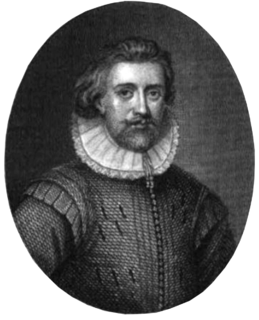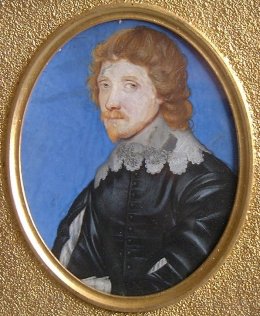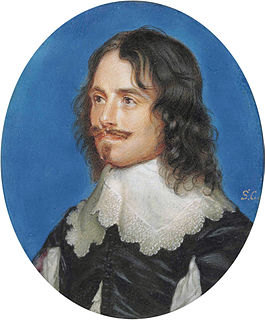Life
The eldest son of Alexander Gibson, Lord Durie I (died 1644) and his wife Margaret, eldest daughter of Sir Thomas Craig of Riccarton, he was made a clerk of session with his father who was promoted to the Scottish bench in 1621. He opposed Charles I's Scottish religious policy based on the service-book, and protested against the royal proclamations of 1638. He petitioned the presbytery of Edinburgh against the bishops, November 1638, and was commissary-general of the forces raised to resist Charles I in the Second Bishops' War of 1640. [1]

Alexander Gibson, Lord Durie I was a Scottish judge and legal writer.
Gibson was, however, knighted 15 March 1641, and made lord clerk register 13 November 1641. He was made a commissioner of the Scottish exchequer 1 February 1645, and sat on the committee of estates (1645–8). He became lord of session in 1646, when he took the title of Lord Durie. [1]
In 1649 Gibson was deprived of his offices by the act of classes, after joining the "engagement" with the king. The diarist John Lamont noted how Gibson and his wife were regarded as "malignants". He was one of the Scottish commissioners chosen to attend the English parliament in 1652 and 1654, and died in June 1656. [1]

The Engagers were a faction of the Scottish Covenanters, who made "The Engagement" with King Charles I in December 1647 while he was imprisoned in Carisbrooke Castle by the English Parliamentarians after his defeat in the First Civil War.
Family
Gibson was twice married; first to Marjory Hamilton, by whom he had one daughter; secondly to Cecilia, daughter of Thomas Fotheringham of Powrie, by whom he left Sir Alexander Gibson of Durie, knt., commissioner to parliament in England for Fife and Kinross 1656–9, and for Fife 1659, who died at Durie 6 August 1661. [1]
This page is based on this
Wikipedia article Text is available under the
CC BY-SA 4.0 license; additional terms may apply.
Images, videos and audio are available under their respective licenses.

John Campbell, 1st Earl of Loudoun was a Scottish politician and Covenanter.
The office of Lord Clerk Register is the oldest surviving Great Officer of State in Scotland, with origins in the 13th century.

Sir Thomas Hope, 1st Baronet Hope of Craighall (1573–1646) was a Scottish lawyer, and Lord Advocate under Charles I.

Sir Thomas Craig was a Scottish jurist and poet.

John Hay, 2nd Marquess of Tweeddale was a Scottish nobleman.

John Leslie, 6th Earl of Rothes was a Scottish nobleman, one of the main leaders of the Covenanters.
Sir Alexander Falconer, 1st Lord Falconer of Halkerton (1595–1671), was a Scottish judge.
Sir James Foulis, Lord Colinton, was a Scottish politician and judge.
Sir Alexander Ogilvy, 1st Baronet was a Scottish politician and judge, lord of session under the title Lord Forglen.
Sir James Lockhart, Lord Lee was a Scottish courtier, politician and judge, a royalist commander of the Wars of the Three Kingdoms.
James Graham, 2nd Marquess of Montrose was a Scottish nobleman and judge, surnamed the "Good" Marquess.
Sir Andrew Murray, 1st Lord Balvaird (1597?–1644) was a Scottish minister of Abdie in Fife, and the only minister of the Church of Scotland on whom a knighthood or peerage was conferred.
William Ramsay, 1st Earl of Dalhousie was a Scottish nobleman, army officer and politician.

Sir William Scott, Lord Clerkington was a Scottish politician and judge.
Alexander Stuart, 5th Lord Blantyre was a Scottish nobleman, a soldier and politician.
Sir John Hope, Lord Craighall (1605?–1654) was a Scottish judge.
Sir Thomas Hope of Kerse (1606–1643) was a Scottish judge and politician.
Sir Robert Gordon, 3rd Baronet (1647–1704) was a Scottish courtier and politician.
William Hamilton was a Scottish antiquarian.









